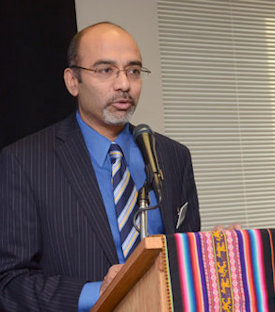Treasurer, General Bd of Global Ministries
 I spent nine years with the Methodist Church of India and almost 20 with the United Methodist General Board of Global Ministries. In these years I have experienced a great deal of inspiring, heart-warming, and committed mission effort and effective results—a great deal of Christ-like love offered, received, and shared.
I spent nine years with the Methodist Church of India and almost 20 with the United Methodist General Board of Global Ministries. In these years I have experienced a great deal of inspiring, heart-warming, and committed mission effort and effective results—a great deal of Christ-like love offered, received, and shared.I have also encountered a network of complex economic, regulatory, and legal accountability. While ethical issues are bound to occur in global organizations, such issues are rarely seen by the constituent parts of the mission community—donors, recipients, missionaries, or volunteers.
Mission involves resources, which means someone’s money. That has been the case since Jesus sent out 70 missionaries (Luke 10:1-9), advising them to take no purse and rely on the generosity of those they met for food and lodging. Mission requires means, and in the case of The United Methodist Church, the means come from United Methodist church members.
- Transferring funds from one fiscal system or culture to another—different countries have different rules for banking, paying personnel, and providing benefits. It takes a skilled and experienced staff to know how to operate on a global scale.
- Handling the registration of property and projects—some countries require religious groups to have official government recognition; others sanction certain private or church activities, such as education. It takes attorneys familiar with international law, knowledgeable staff members, and attorneys from different countries working together to handle these issues.
- Evaluating the fiscal and legal capacities of mission partners—some have professional-grade capacity while others need training. It takes skills learned from experience to be a patient partner; internal auditors must be both pastoral and good at ensuring accountability.
Last Updated on January 30, 2024

